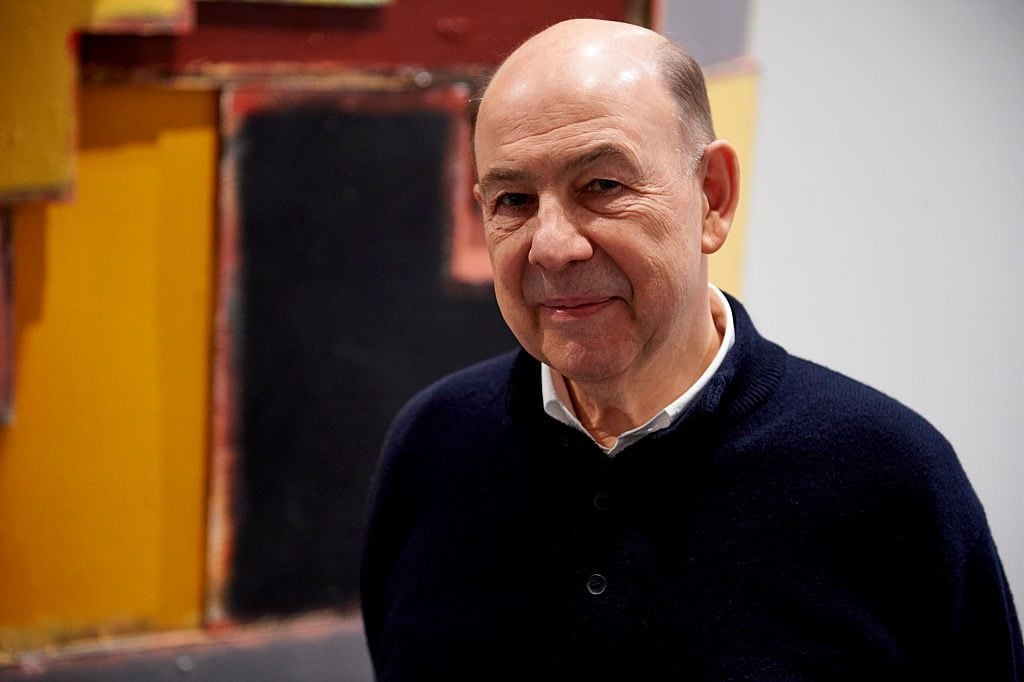Law & Politics
The Tate Has Permanently Cut Ties With Patron Anthony d’Offay More Than Two Years After He Faced Harassment Accusations
Dealer Anthony d'Offay served as one of its leading patrons over the years.

Dealer Anthony d'Offay served as one of its leading patrons over the years.

Eileen Kinsella

The Tate in London has formally severed ties with longtime art dealer and patron Anthony d’Offay, who was accused of harassment by several women in 2018. As part of the agreement, which the museum acknowledged in a brief statement on Friday, it will remove d’Offay’s name from signage in the building, including on the walls of Turbine Hall, and return works the dealer had loaned to the museum.
Unaffected by the new agreement is Artist Rooms, a touring program d’Offay co-founded with the Tate and National Galleries of Scotland to send contemporary art to some 77 museums and galleries across the nation since its initial acquisition in 2008.
Tate initially broke off its relationship with the dealer in 2018 after a report in the Observer detailed allegations of inappropriate behavior between 1997 and 2004. Four women accused d’Offay of sexual harassment and mistreatment; the paper reported that the Metropolitan Police were investigating a complaint from one woman who said she had received “malicious communications” from the collector. D’Offay has emphatically denied the claims and could not be reached for further comment.
Tate (as well as the National Galleries of Scotland) quietly renewed contact with D’Offay after the police inquiry failed to materialize and other investigations “produced no firm evidence,” according to the Times. (Tate trustees, as well as d’Offay’s former business partner, reportedly advocated on his behalf.)
A spokesperson for the Metropolitan Police did not immediately return a request for comment from Artnet News about the status of the investigation and Tate did not specify whether it had conducted its own internal investigation.
It did not take long after news of the resumed relationship broke for pushback to mount; an open letter signed by 50 artists, curators, art historians and art workers objected to the Tate’s decision to re-establish ties with the patron.
The issue resurfaced again earlier this year when Tate expressed support for the Black Lives Matter movement on social media, prompting critics to recirculate a selfie that d’Offay took in 2017 posing with a racist doll, which he allegedly sent to a Black woman artist. (“We do not condone racist imagery, abuse or discrimination inside Tate, our galleries or digital platforms,” a Tate representative said at the time.)
The Artist Rooms collection, which d’Offay sold at below-market prices to the Tate and National Galleries of Scotland, includes 1,600 works by 40 international artists, including Jeff Koons, Jenny Holzer, Roy Lichtenstein, Diane Arbus, Gerhard Richter, Andy Warhol, and Damien Hirst.
In its latest statement, the Tate says: “Tate and Anthony d’Offay have agreed to end their relationship. This involves the return of works on loan to Tate from Anthony d’Offay and Anthony d’Offay Limited and the removal of public signage at Tate. The Artist Rooms Collection, which is jointly owned by Tate and the National Galleries of Scotland, will not be affected by these changes. Neither Tate nor Anthony d’Offay will be commenting further on this matter.”
Industria, an artist collective that has been highly critical of d’Offay, said in a tweet: “After 3 years of pressure, Tate have finally fully cut ties with Anthony d’Offay. Tate are not off the hook—this is deep and structural and won’t be erased along with his name.”
After 3 years of pressure, Tate have finally fully cut ties with Anthony d’Offay. Tate are not off the hook – this is deep and structural and won’t be erased along with his name. Our full statement in the thread below: https://t.co/ojOrury4lx
— industria (@weindustria) September 4, 2020
The National Galleries of Scotland did not immediately respond to Artnet News’s request for comment. However, the Guardian reported that a representative for the museum “suggested it was also considering breaking links.” According to the report, the Scottish gallery’s board of trustees will consider its relationship with d’Offay at their next meeting.